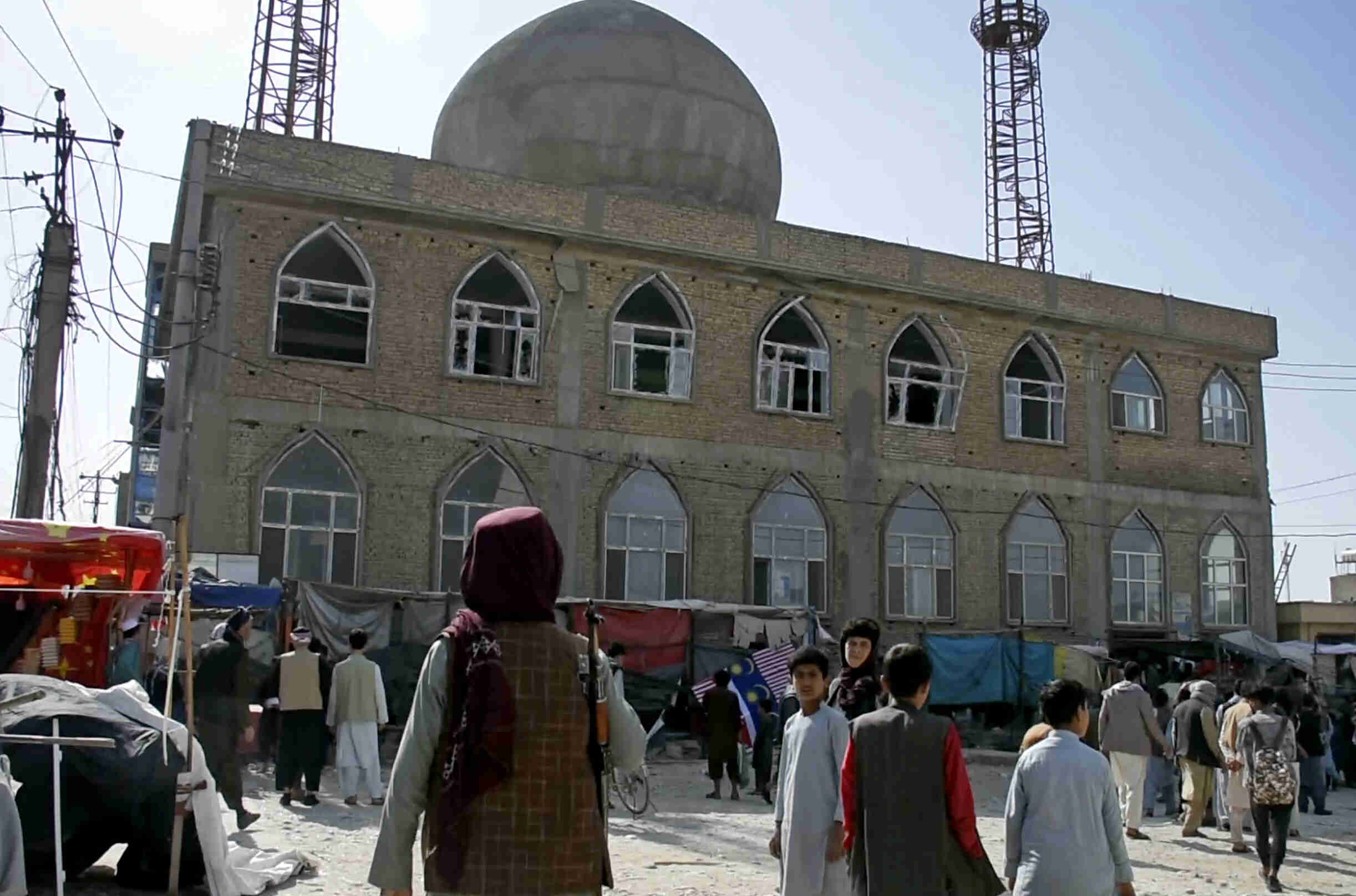Abject failure
Uncontrolled killings of minorities in Afghanistan demonstrate the weakness of the Taliban

In around four months' time, the Taliban-led Afghanistan regime will be completing one year of its rule. Most lamentably, the ill-fated country is still reeling under severe economic crisis with no signs of recovery from starvation, denial of female education and, above all, spiraling activities of religion-based terror. The Taliban, which itself had been a dreaded terror outfit, has measurably failed to contain the rising threats of the Islamic State (Khorasan–K) and other radicalised terror groups that are indiscriminately targeting minority communities across the length and breadth of Afghanistan.
In a recent grotesque terror attack at Seh Dokan Mosque in Mazar-i-Sharif, scores of Shias Hazaras of the minority lot were killed — invoking among them a greater sense of insecurity. Such a shocking happening, particularly in the holy month of Ramadan, drew condemnation from several quarters. Hazaras constitute nearly 15 per cent of the 38 million Afghans who are often targeted for their sect. Knowledgeable sources confirm that it is the Taliban and its affiliates who are chiefly responsible for this dastardly attack. Similar terror attacks go unabated in this unfortunate country; there were cases of two blasts outside a Shias neighborhood in Kabul, killing at least six people and injuring many. Separately, several deaths occurred while Shias were targeted through detonation by a bicycle bomb in Kunduz city.
Judging by earlier attacks of similar nature, it should be reiterated that in May last year at least 85 people, mainly girls' students, were killed and nearly 300 were wounded when three bombs exploded near their school in the Shia-dominated Dasht-e-Barchi neighborhood of Kabul. Iran, which is a predominantly Shia country, has reacted rather angrily at the recent Mazar-i-Sharif killings. Iran's Foreign Ministry spokesman, Saeed Khatibzadeh, expressed concern over the rising number of "bitter incidents". It may be stated that like other Afghan neighbors, Iran has not yet formally recognised the Taliban authorities that took over when the United States ended its 20-year military presence last summer. Tehran has been calling for a broad-based government in Afghanistan.
Earlier, Iran had condemned terror attack at a boys' high school and other educational institutions in the Shia-dominated neighborhood of the Afghanistan capital, Kabul. In a tweet last week, Foreign Ministry spokesman, Saeed Khatibzadeh, censured what he said was `Takfiri' terrorists shedding the blood of innocent teenagers, urging Taliban officials to identify and punish the perpetrators. Iranian officials use `Takfiri' as a vague umbrella term to refer to Sunni dissidents or extremist groups and individuals, including the Islamic State (ISIS), alleging that they are organised by western powers and Wahabis.
In the meantime, other than Iran, the UAE has also strongly condemned the two terror attacks in Afghanistan, one of which targeted a mosque in Mazar-e-Sharif. In a recent statement, the Ministry of Foreign Affairs and International Cooperation (MoFAIC) affirmed: "the UAE expresses its strong condemnation of these criminal acts and its permanent rejection of all forms of violence and terrorism that aim to destabilise security and stability in contravention of all humanitarian values and principles."
Analysts feel that the Taliban has absolutely no control over the terrorists and many of its dissidents are complicit with the ISIS (K) in the spate of killings. Such perpetrators have no respect for their religion as they are carrying out terror assaults with impunity during Ramadan when the Eid festival is round the corner.
A section of the Afghanistan military is also suspected to be hand in glove with the terrorists demonstrating the extent of religious indoctrination they are afflicted with. Of late, Afghan military, with the tacit support of Tehrik-e-Taliban Pakistan (TTP), has been actively engaging with the Pakistan military. The Afghan defense ministry has been vehemently protesting against the military offensives, especially the aerial attacks by Pakistan killing Afghan civilians. This is a convenient excuse for the Afghans to say that they are unable to adequately address the terror challenges which has been taking toll of the Shia minority at regular intervals. It would seem there is a definite pattern of target killings of the Shias. By implication, the complicity of a section of Pakistani military in conniving with the radicalised Afghan forces in carrying out bombings and killings in Afghanistan, putting the minority lives in peril, cannot be ruled out.
International community, unfortunately, has been muted on the recent killings because these have become routine. Also, they are more engaged with the ongoing Russia-Ukraine war and its fallout. Due to global indifference, and in the absence of any strong condemnation or monitored killings, Afghanistan continues to descend in the deep gorge of terror with no signs of hope. Unfortunately, it is the Shias who are bearing the brunt.
The writer is a retired IPS officer, a security analyst and a former National Security Advisor to the PM of Mauritius. Views expressed are personal



